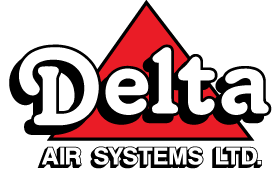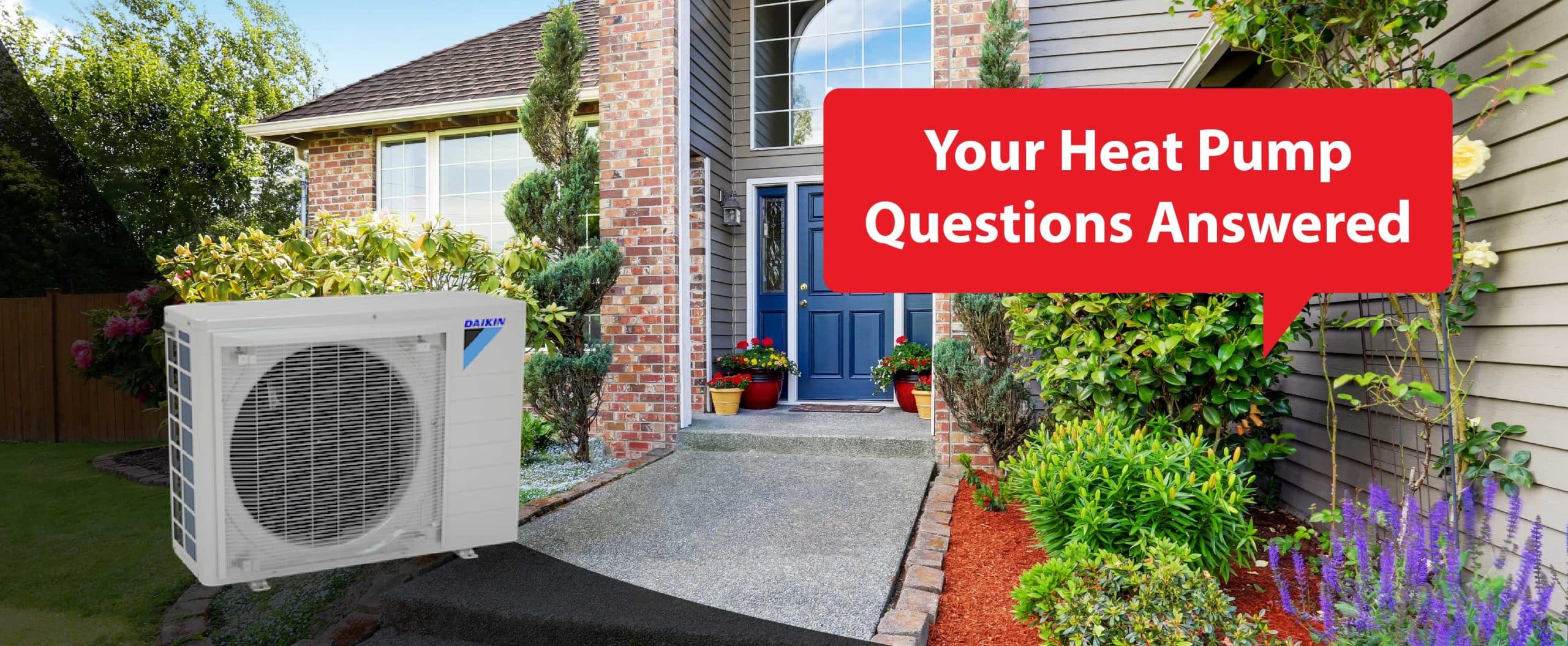Have questions about heat pumps? We’ve answered some of your most common questions about heat pumps in this article.
1. How does a heat pump work?
A heat pump transfers heat from one place to another using a refrigeration cycle. It can both heat and cool a space by moving heat from a colder area to a warmer one, or vice versa.
In heating mode, a heat pump absorbs heat from the outdoor air, ground, or water source, then compresses and transfers the heat to an indoor coil. The heated refrigerant is then circulated inside the home.
In cooling mode, the process is reversed. Heat pumps absorb heat from the indoor air and release it outside, cooling the indoor air.
2. What are the different types of heat pumps?
There are several types of heat pumps, including:
- Air-source heat pumps
- Ground-source (geothermal) heat pumps
- Water-source heat pumps
- Hybrid heat pumps
- Ductless mini-split heat pumps
Each type of heat pump has its own advantages and disadvantages, and the best type for your home will depend on factors such as climate, the size of your home, and your heating and cooling needs. A Delta technician can help you determine what’s right for your home and needs.
3. What are the advantages of using a heat pump?
There are several advantages of using a heat pump for heating and cooling your home, including:
- Energy efficiency
- Cost savings
- Dual function
- Improved comfort
- Environmentally friendly
- Durability
- Versatility
4. Are heat pumps cost-effective compared to traditional heating and cooling systems?
Heat pumps can be cost-effective compared to traditional heating and cooling systems.
Heat pumps can be more energy-efficient than traditional heating and cooling systems because they transfer heat rather than generate it. This means they can provide the same level of heating or cooling using less energy. Since they use less energy, you can save money on utilities. Additionally, because heat pumps provide both heating and cooling in one system, you don’t need separate systems, and that reduces installation and maintenance costs.
5. How efficient are heat pumps?
Heat pumps are generally more efficient than traditional heating and cooling systems, as they transfer heat rather than generate it.
The efficiency of a heat pump can vary depending on several factors, including the type of heat pump, the size of the home, and the climate. Ultimately, air-source heat pumps can provide up to 50% in energy savings compared to traditional electric, oil or propane heating.
6. How do I choose the right size of heat pump for my home?
Choosing the right size of heat pump for your home is important to ensure that it can provide adequate heating and cooling without wasting energy or driving up your energy bills. A licensed technician can help determine the size of heat pump your home requires.
Factors that affect this include:
- Heat load of your home
- Heat pump capacity
7. How do I maintain my heat pump?
Proper maintenance is essential to ensure that your heat pump operates efficiently and lasts for a long time. Here’s what’s involved in maintaining your heat pump:
- Cleaning and replacing air filters
- Checking and clearing outdoor unit
- Checking refrigerant levels
- Cleaning the coils
- Scheduling regular maintenance
8. Can a heat pump be used in extremely cold climates?
Yes, heat pumps can be used in extremely cold climates, but they may not be as efficient as they are in milder climates. There are cold-climate heat pumps that work well in lower temperatures. If you live in an extremely cold climate, you might consider a dual-fuel heating system that combines a heat pump and a furnace.
9. Are there any incentives or heat pump rebates available?
Yes, there are incentives and tax credits available for installing a heat pump in Canada. There is the Canada Greener Homes Grant which is being co-delivered through the HER+ program with Enbridge Gas. These incentives can be used toward the installation of certain heat pumps. There might be others depending on your province or territory.
Call Delta to find out if we have additional rebates or promos.
10. How long does a heat pump typically last?
The lifespan of a heat pump typically ranges from 10 to 15 years, although some can last up to 20 years with proper maintenance. The lifespan can vary depending on factors such as the quality of the equipment, the level of usage, and the climate. Regular maintenance is important to ensure the longevity of a heat pump.
Have More Questions?
If you have more questions, contact Delta. We’d be happy to discuss heat pumps and your options for installation further. Keep an eye out for our upcoming Your Heat Pump Questions Answered Part 2.
If you’re interested in learning more about heat pumps, call us!
Delta Air Systems Ltd. has been proudly serving the HVAC needs of the Kitchener-Waterloo, Cambridge, and Guelph regions since the 1950s. We strive to provide our clients with reliable service and cost-effective solutions.
Connect with us on Facebook and Instagram for more HVAC tips and our latest promotions.





